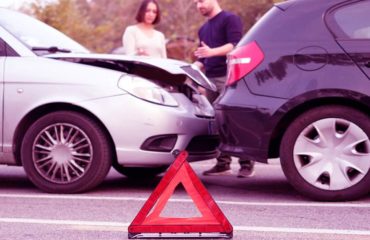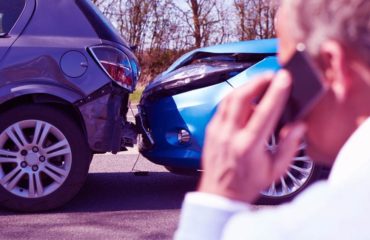Dangerous driving is a criminal category under the Criminal Code of Canada.
The category of dangerous driving can be brought about when a police officer believes that a motor vehicle is being driven in a generally dangerous manner.
Often, dangerous driving is said to be “operating a motor vehicle with senseless, reckless indifference to public safety.”
Punishment for Dangerous Driving
Penalties for dangerous driving are imposed by the judge during conviction and may include
- Imprisonment
- Fines
- Life in prison, and
Drivers convicted of dangerous driving can be charged a higher fee, have their insurance coverage cancelled, or look to Safety to place the driver on an insurance assessment.
The Ontario Ministry of Transportation imposes a mandatory driver’s license suspension for one year after a conviction for dangerous driving. Confirmation decisions regarding dangerous driving are retained in the driver’s register/collection for 10 years.
Definition of Dangerous Driving
Dangerous driving can be defined as operating a motor vehicle with deliberate, reckless indifference to the life and safety of others.
The Penal Code lists three different situations in which an accused can be charged
Dangerous Operation.
- 320.13(1) A person who, considering all the circumstances, utilizes a means of transportation in a manner that is generally dangerous and criminal.
Mode that causes bodily injury.
- (2) A person who misuses a means of transportation in a manner that is generally dangerous considering all the circumstances and therefore causes bodily harm to another commits an offense.
Function of death
- (3) Whoever misuses a mode of transportation in a manner that is dangerous to the public taking into account all the circumstances and thus causes the death of another commits an offense.
Proof of Dangerous Driving
When the police accuse a driver of dangerous motor vehicle operation, the prosecution must prove four things
- Intent to commit the act, the
- Occurred in a place to which the public had access, and
- As defined in the Criminal Code of Canada, it involved a motor vehicle, the
- The driving energy was dangerous.
Intent in legal terms is referred to as “mens rea,” the presence of a guilty mind. The driver must have “intended to commit a crime”. In other words, the driver must have had.
- Intended to drive in a dangerous manner, and/or
- That the driver intended to do so.
Accidents and Dangerous Driving
Many times in serious car accidents you need car accident lawyer, police believe that this situation justifies more than a traffic call.
The police believe that the driver should recite to the driver the most serious categories of dangerous driving so that the driver receives the maximum penalty.
While what happened may have been a horrible situation, most accidents do not fall under the legal definition of dangerous driving.
The reason for this is that most accidents are either unscheduled or unintentional.
Accidents are usually the result of driver error, not intentional bad or dangerous driving.
What is intended?
The category of dangerous driving requires intent.
When examining whether a driver is guilty of dangerous driving, should the court consider whether the driver intended to lead a dangerous lead?
Legally speaking car accident Lawyer, this is called “mens rea” (Latin, to have a guilty mind, you intended to commit the practice).
The intent was: to
- To drive dangerously.
- Was the incident an unplanned accident, the
- Or did the driver drive carelessly?
In a high volume accident where the driver drove without due care and attention, we must reject the dangerous driving category because a conviction for dangerous driving requires intent.
I did not think there was any way to bypass this, as in my case there was an accident that complicated things. All five other attorneys told me that my chances were only 50/50.
When I met with Nick, he spoke to me with confidence, knowledge and exposed me to the possibilities from the start. He is known and respected by his colleagues. He is honest, his salary is very reasonable and his office was an absolute pleasure to cooperate with. Most importantly, it won my case! (GoogleReViews)
You Are Not Guilty
If the police arrest you, you may feel it is wrong, that you are guilty. According to Canadian law you have the right to ask the judge what happened and the judge makes the decision not the police. There is only one judge who can decide your guilt or innocence and there is defensible evidence of dangerous driving.
The fact that the police accused you does not mean that you are guilty. Let me explain how we can help you when discussing your category. With categories such as dangerous driving, there are many legal defenses in this category and we have always been able to assist our clients.
Assumptions of Defense by Haritsi Legal Company
Do you want legal tips or would you like to speak with an attorney? Your first step is to call 705-295-1070.
There is no charge or obligation to call and speak with us. Discussions are conducted in absolute confidentiality and confidence with an Car Accident Lawyer.
During this call, the attorney will
- Listen to your case
- Answer any questions you have
- Examine the documents given to you by the police Submit the documents to be examined using the form on the side of the page.
Allow the attorney to give you an opinion about your case and let you know:.
- Possible class advocates
- Legal arguments for your case
- What you can do to help your case
- How much does it cost to defend the class
If you decide to retain our services, we invite you to meet with us at our office in Toronto.
At this meeting we will discuss your case in detail, plan your defense, and arrange an initial trial.
We ask for a reasonable deposit when you retain our services, 10-25%.



